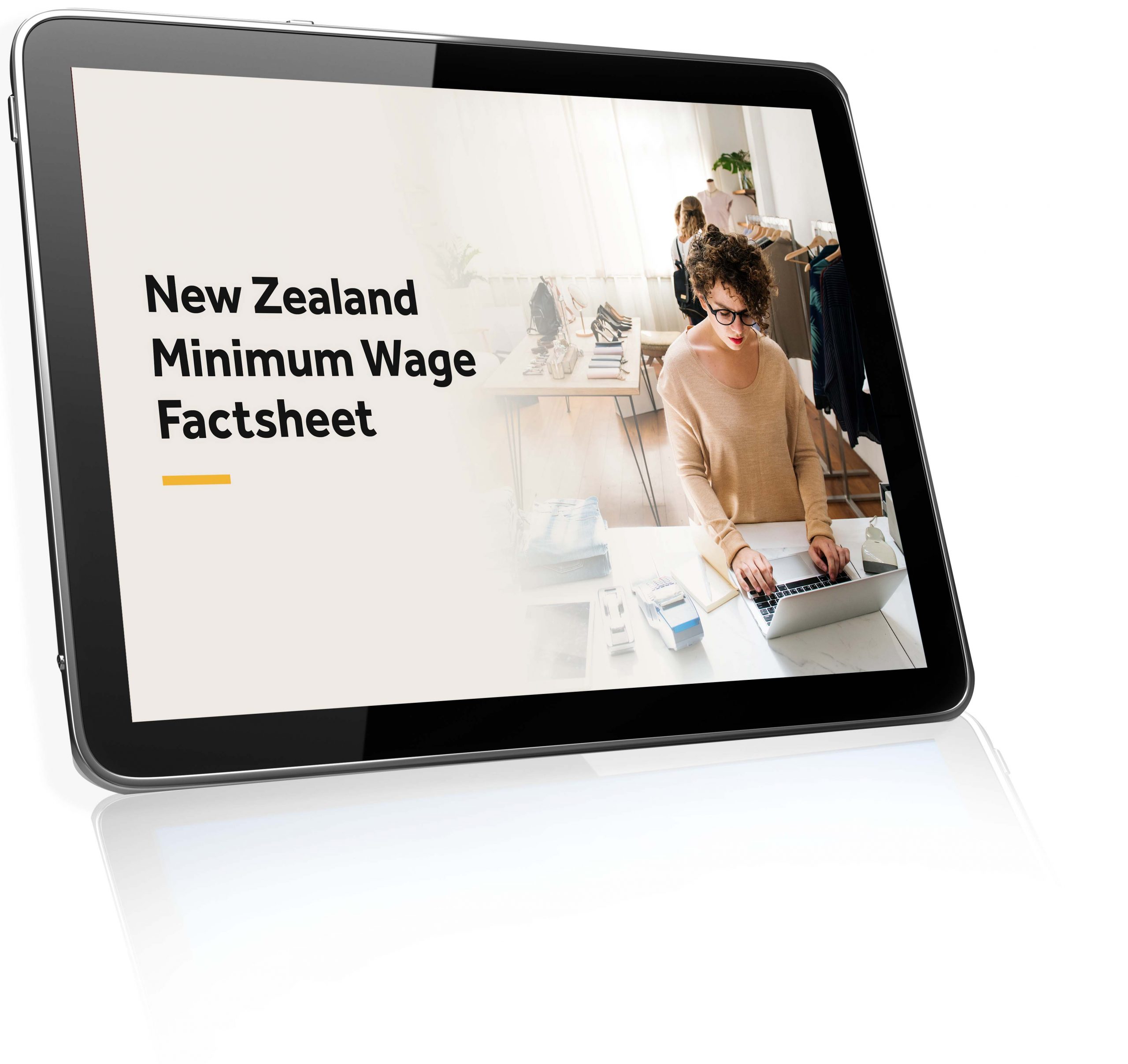
On 29 October 2023, the New Zealand government made an important change to legislation surrounding the use of 90-day trial periods for workers hired on Accredited Employer Work Visas. With those changes now in effect, all applicable businesses must follow the new rules.
Are you unsure about the nature of the changes, whether they impact your business, or what you should do next? This article will unpack the details and help you plan how to manage your workforce in line with the new legislation.
What are the legislation changes for 90-day trial periods?
In a nutshell, accredited employers are no longer able to include 90-day trial periods in employment agreements when hiring people on Accredited Employer Work Visas (AEWVs).
AEWVs are temporary work visas that allow migrant workers to work for accredited employers in New Zealand for up to 3 years. Accredited employers are businesses that have been approved by Immigration New Zealand to hire migrant workers on AEWVs.
To become accredited, employers must meet several requirements, including:
Paying their workers at least the New Zealand median wage, unless the role is on an exemption list.
Showing that they have tried to hire New Zealanders for the role first.
Having a good track record of employing migrant workers fairly and ethically.
This means that hiring AEWV workers with a 90-day trial period inserted into their employment agreement represents a breach of employment law.
Who does the change apply to?
The change applies to all businesses that are accredited to hire migrant workers on an AEWV. While a wide range of industries will be impacted, those that rely on AEWV workers will feel the change the most, including sectors like agriculture, hospitality, and healthcare.
Who’s enforcing the changes?
The New Zealand government’s Immigration New Zealand (INZ) is responsible for enforcing the legislation change. INZ has multiple ways to detect breaches of the new law, including:
Job Check process: INZ requires accredited employers to complete a Job Check process before hiring an AEWV worker. This process includes providing INZ with information about the job, the AEWV worker, and the employment agreement. INZ will review the employment agreement to ensure that it does not include a trial period.
Post-decision and re-accreditation checks: INZ also conducts post-decision and re-accreditation checks on accredited employers. These checks can involve reviewing employment agreements to ensure that employers are complying with the new law.
What happens to employers who breach the new law?
If INZ finds that an accredited employer has breached the new law, they may take several actions, including:
Revoking the employer’s accreditation: This would mean that the employer would no longer be able to hire migrant workers on AEWVs.
Issuing a compliance notice: This would require the employer to take steps to comply with the new law, such as removing the trial period from the employment agreement of any AEWV workers who are currently on a trial period.
Prohibiting migrant sponsorship: This would prevent the employer from sponsoring and hiring any new migrant workers, including AEWV workers.
INZ also has the power to prosecute accredited employers who breach the new law. If convicted, an employer could face a fine of up to NZ$50,000.
Why have the changes been made?
The changes to the use of 90-day trial periods have been made to encourage accredited employers to treat migrant workers fairly and only recruit them when they have a genuine labour need or skills gap to fill.
The previous legislation was seen as making it too easy for accredited employers to dismiss migrant workers without just cause. This meant AEWV workers dealt with uncertainty and a lack of job security until their 90-day trial period had passed.
The new legislation is a positive step towards protecting the rights of migrant workers, ensuring that all workers in New Zealand are treated equitably and that decisions to end an AEWV worker’s employment is made in a fair and reasonable way.
What impact will the new legislation have on businesses?
The recent changes to 90-day trial period legislation are a significant development for businesses in New Zealand. Accredited employers need to be aware of the changes and take steps to comply with the new requirements.
The changes are likely to have several important implications, including:
Increased costs of hiring and retaining staff
Reduced flexibility in managing staff
Increased risk of legal disputes
Previously, the 90-day trial period gave employers a high level of flexibility with recruiting and dismissing AEWV workers. However, the new legislation means hiring an AEWV worker is more likely be a long-term decision.

Are you paying the minimum wage?
The minimum wage increased in April 2023.
It’s important that employers understand the latest minimum wage increases and how it impacts them. We have compiled a factsheet to help prepare your business for the upcoming wage increase.
Download our FREE Minimum Wage Increase Factsheet today!
What should employers do?
The old laws made it easy for employers to adjust the size of their workforce based on the changing demands of a business. With the new legislation reducing this flexibility, accredited employers will need to be sure there is a genuine need for a worker’s skills before offering them a job.
The new legislation also means accredited employers will need to be more careful about who they hire. Without the chance to assess a worker’s suitability during a 90-day trial period, there’s now a stronger emphasis on employers picking the right candidates from the outset.
Accredited employers will need to use a more rigorous selection process during recruitment, ensuring the candidate they hire has the skills and experience needed to perform the role.
Finally, accredited employers who hire migrant workers on an AEWV should review their employment agreements to ensure that they do not include a trial period.
Are there any other steps employers can take?
Beyond maintaining compliance with the new legislation, accredited employers may choose to take steps to offset the impact on their workforce management.
Businesses might consider implementing the following:
Offering new AEWV employees a shorter probationary period, such as 30 or 60 days. This can give them a chance to assess the employee’s suitability for the role without having to commit to a long-term employment contract.
Providing new AEWV employees with comprehensive training and support. This can help employees to get up to speed quickly and perform their role to a high level.
Developing clear and fair performance management processes. This can help employers to identify and address any performance issues early on, and to make fair and reasonable decisions about employment termination if necessary.
Key takeaways
The recent changes to 90-day trial period legislation in New Zealand are a significant development for businesses that hire migrant workers on AEWVs.
It’s important to take the time to evaluate how the changes are likely to impact on your business. The new legislation could lead to increased costs of hiring and retaining staff, reduced flexibility in managing staff, and increased risk of legal disputes. However, all of these effects can be mitigated with proper planning.
Ultimately, the changes are a positive move towards protecting the rights of migrant workers in New Zealand. By complying with the new legislation and making strategic adjustments where needed, accredited employers can continue to manage a productive workforce, while also demonstrating their commitment to fair and ethical employment relationships.
Thousands of business owners in New Zealand trust Employsure to support them with their employment relations responsibilities. We can support you too.
Call our FREE Advice Line now on 0800 675 700 to get the facts straight about 90-day trial periods and the legislation changes.
